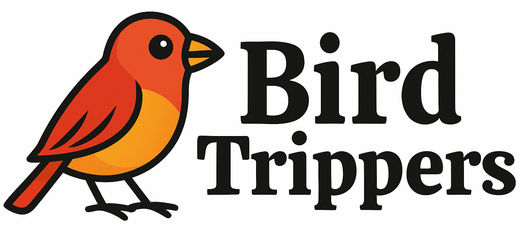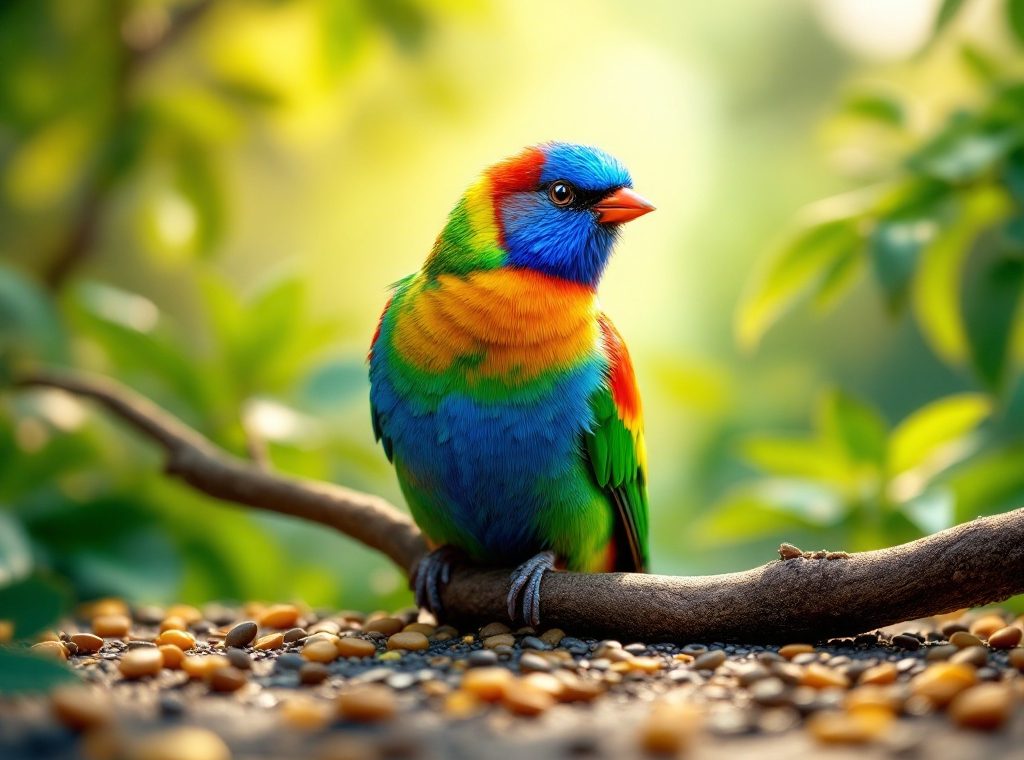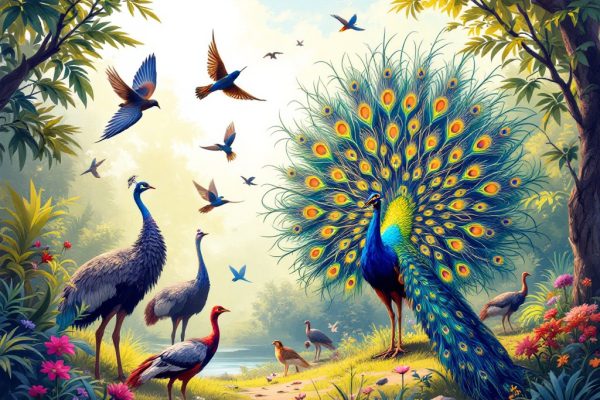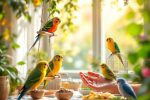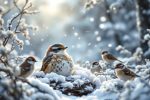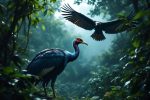Can Birds Eat Chia Seeds? Make Sure Your Bird is Healthy
Want to boost your bird’s health with a tiny but mighty seed? Chia seeds are packed with omega-3s, protein, and fiber, promoting healthy feathers, strong immunity, and better digestion. Learn how to safely add this nutritional powerhouse to your bird’s diet for optimal well-being. Discover the benefits, serving sizes, and tips for different species. Fly over to our guide and give your feathered friend the gift of chia!
Important information
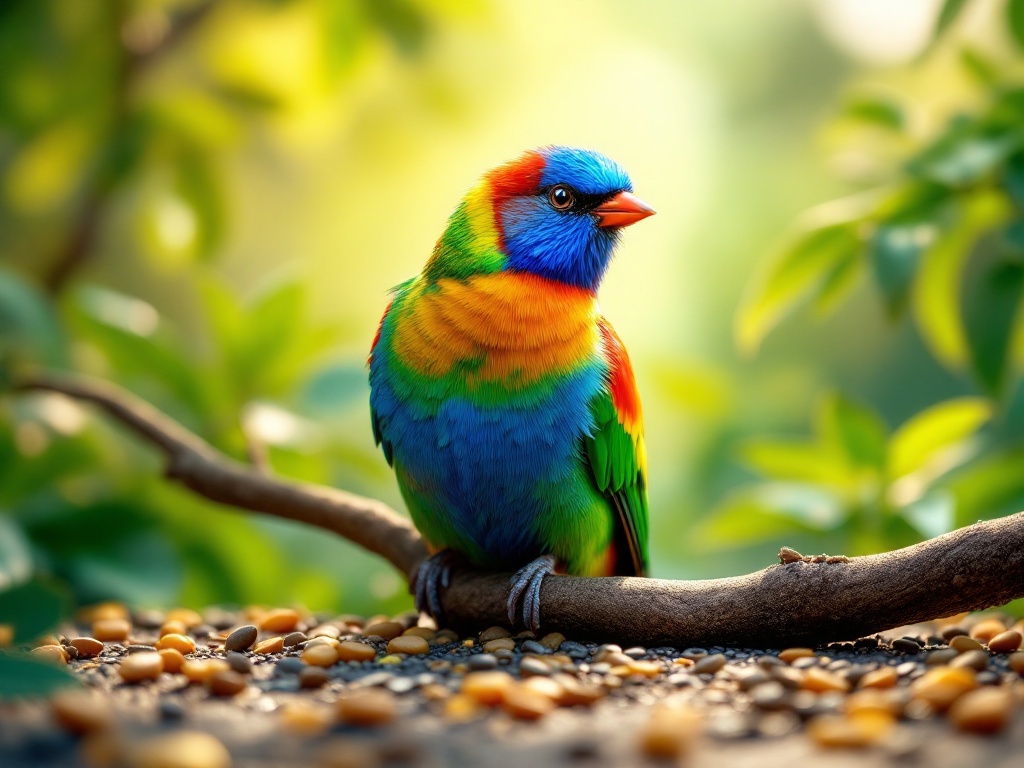
- Chia seeds are a good source of omega-3 fatty acids, protein, and fiber, benefiting birds’ feather health, immune system, heart, and digestion.
- Chia seeds should be a supplemental part of a bird’s diet, not a primary food source. Introduce them gradually and in moderation.
- Soaking chia seeds before feeding can improve digestibility, especially for smaller birds.
- Do not feed birds expired or rancid chia seeds, as they can be harmful.
- Overfeeding chia seeds can cause digestive problems due to their high fiber content.
Can Birds Eat Chia Seeds? Make Sure Your Bird is Healthy
Chia seeds offer birds a powerful nutritional boost, packed with omega-3 fatty acids, protein, and fiber, promoting their overall health. However, these tiny seeds should only be a supplemental part of a balanced avian diet, alongside fruits, vegetables, and a variety of other seeds. Overfeeding chia can disrupt this dietary equilibrium.
Nutritional Value of Chia Seeds for Birds
Chia seeds are a nutritional powerhouse for birds, brimming with protein, fiber, and essential fatty acids that significantly boost their health. These tiny but mighty seeds are packed with vitamins and minerals, further enhancing their nutritional value and making them an excellent addition to any bird’s diet.
Protein and Fiber Content
Chia seeds are a nutritional powerhouse for birds. They are packed with protein for strong feathers and healthy muscles, and fiber for efficient digestion. These tiny seeds contribute significantly to a bird’s overall well-being.
Essential Fatty Acids and Omega-3
Chia seeds are nutritional powerhouses, brimming with essential fatty acids, especially omega-3s. These omega-3s play a vital role in maintaining healthy cells, promoting vibrant plumage, and regulating body temperature. Their numerous benefits make them a valuable dietary addition.
Vitamins, Minerals, and Antioxidants
Chia seeds are nutritional powerhouses packed with vitamins such as B, A, and E. They are also rich in minerals, including calcium, phosphorus, magnesium, manganese, copper, iron, and zinc. Moreover, these tiny seeds boast a remarkable antioxidant capacity, even surpassing blueberries.
Health Benefits of Chia Seeds for Birds
Chia seeds are a nutritional powerhouse, offering several key benefits for birds, especially regarding feather health. The omega-3 fatty acids contribute to stronger, healthier plumage. These tiny seeds also boost the immune system, packed with antioxidants, vitamins, and minerals. Chia’s omega-3s promote cardiovascular health, benefiting a bird’s heart. Their high fiber content aids digestion, helping regulate the digestive system. For nesting females, chia seeds are invaluable, providing essential nutrients for healthy egg production. Finally, they offer a boost of energy, crucial for warmth during cold winter months. Remember to feed chia seeds in moderation as part of a balanced diet.
- Promotes stronger and healthier plumage.
- Boosts the immune system with antioxidants, vitamins, and minerals.
- Benefits cardiovascular health.
- Aids digestion with high fiber content.
- Provides essential nutrients for healthy egg production in nesting females.
- Offers a boost of energy, crucial for warmth during cold winter months.
Benefits for Feather Health
Chia seeds are an excellent source of protein, essential for healthy feathers. Strong feathers are vital for flight, insulation, and mating displays. Furthermore, the nutrients in chia seeds contribute to overall feather maintenance, keeping birds healthy and vibrant.
Role in Immune System Support
Chia seeds are rich in antioxidants, which strengthen a bird’s immune system, helping them fight off diseases. This makes chia seeds a valuable addition to their diet.
Heart Health and Digestion Improvement
Chia seeds offer significant heart health benefits thanks to their omega-3 fatty acids, which lower both blood pressure and cholesterol. Furthermore, their high fiber content promotes healthy digestion, encouraging regular bowel movements and a thriving gut, ultimately contributing to overall well-being.
Support for Female Birds During Nesting
Chia seeds are a great source of calcium and manganese, essential minerals for female birds, especially during nesting. These nutrients contribute to healthy egg production and strong eggshells, crucial for successful hatching. This makes chia seeds vital for avian reproductive health.
Helping Birds Stay Warm in Winter
Chia seeds offer birds a rich source of healthy fats, essential for regulating body temperature and staying warm throughout the winter. These fats also provide a crucial energy boost during the colder months, making chia seeds a valuable food source.
Safe Feeding Practices for Chia Seeds
Introducing chia seeds to your bird’s diet should be a gradual process. Start by mixing about 1/4 teaspoon of chia seeds into their regular food. Gradually increase the serving size while monitoring your bird’s tolerance. A moderate amount a few times a week is generally sufficient. You can offer chia seeds dry or soaked. Soaking chia seeds in water for 10-15 minutes can improve digestibility, especially for smaller birds. Soaking can also lead to sprouting, which further boosts their nutritional value. For a balanced diet, consider mixing chia seeds with other foods. Combining chia with their regular seed mix, pellets, fruits, or vegetables ensures your bird receives a variety of nutrients.
How to Introduce Chia Seeds to a Bird’s Diet
Start by mixing a small amount of chia seeds with your bird’s regular food.
You can also sprinkle chia seeds on softer foods like fruits or vegetables.
Consider soaking the chia seeds, as the gel-like consistency is often appealing to birds.
Monitor your bird’s reaction to the chia seeds and increase the amount if they like it.
If your bird doesn’t enjoy chia seeds, stop offering them.
Moderation and Serving Sizes
Chia seeds offer excellent nutritional value for birds, but they shouldn’t replace a balanced diet. These tiny seeds are best served as an occasional treat, not a staple food. A small pinch a few times a week is sufficient for smaller birds like budgies and canaries. Larger birds can tolerate slightly more, but moderation is key to avoid digestive upset.
Preparing Chia Seeds: To Soak or Not to Soak?
Soaking chia seeds before feeding them to birds aids digestion because the seeds swell and form a gel. Dry chia seeds are also a suitable food source.
Mixing Chia Seeds with Other Foods
Chia seeds are a nutritional powerhouse for your feathered friend. Try mixing them into softened pellets, mashed fruits, or chopped vegetables like leafy greens and grated carrots. This simple addition provides a healthy boost to any bird’s diet.
Chia Seeds for Different Bird Species
Chia seeds are a nutritional powerhouse for birds, from beloved pets like budgies, lovebirds, and parakeets to wild pigeons and other backyard visitors. These tiny seeds offer a wealth of omega-3 fatty acids, along with protein and fiber. While highly beneficial, introduce chia seeds gradually, offering them only a few times per week. Soaking the seeds beforehand can further aid digestion, helping your feathered friends absorb the maximum nutritional value.
Pet Birds: Budgies, Lovebirds, and Parakeets
Chia seeds are a nutritional powerhouse for small parrots like budgies, lovebirds, and parakeets. These tiny seeds offer several health benefits, including protein for muscle development, fiber for digestive health, and omega-3 fatty acids for a healthy heart. Additionally, their antioxidant properties help protect against cell damage. Incorporating chia seeds into a small parrot’s diet contributes to their overall well-being.
Feeding Chia Seeds to Pigeons
Boost your pigeons’ health with the nutritional power of chia seeds. Mix these tiny seeds into their regular feed a few times a week. Soaking the chia seeds beforehand aids digestion. This balanced approach ensures dietary variety and prevents digestive upsets. Remember, a small amount of chia seeds goes a long way.
Wild and Backyard Birds
Chia seeds offer a potent nutritional boost for wild birds and backyard feathered friends. Sprinkle them into existing bird feeders to create a supplemental food source packed with valuable nutrients.
Potential Risks and Considerations
Spoiled chia seeds are dangerous for birds, as they can harbor harmful bacteria or mold that can cause digestive upset and other health problems. While nutritious, excessive chia seeds, due to their high fiber content, can lead to stomach issues. Overconsumption can create nutritional imbalances if birds fill up on chia seeds at the expense of other essential foods.
Can Birds Eat Expired or Rancid Chia Seeds?
Don’t feed your birds expired chia seeds, as they can be harmful. Fresh chia seeds are crucial for their health. Store them in a cool, dry place to maintain freshness.
Effects of Overfeeding Chia Seeds
While chia seeds offer some nutritional benefits, overfeeding them to birds can be detrimental. The high fiber content may lead to digestive problems, such as diarrhea, and can also disrupt their nutritional balance. Consequently, chia should be a minor addition to a well-rounded avian diet, used as an occasional supplement rather than a primary food source.
